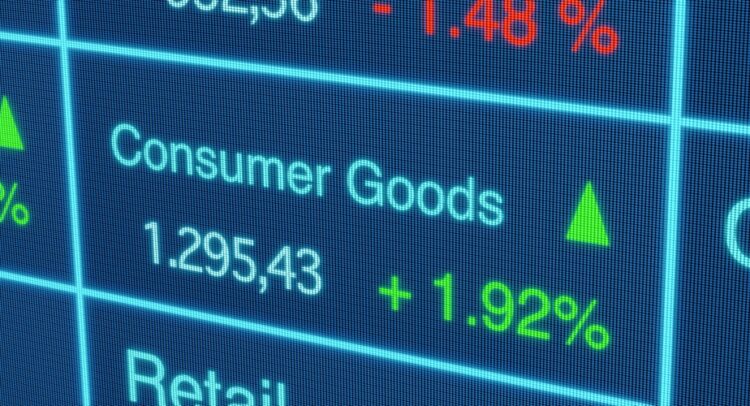Consumer goods stocks like Coca-Cola (KO), PepsiCo (PEP), and Procter & Gamble (PG) tend to shine during periods of macroeconomic uncertainty due to their anti-cyclical and defensive nature. While I maintain a bullish stance on all these three industry giants, I will use TipRanks’ Stock Comparison Tool to explain why, based on a few key factors, I believe KO is currently the best pick among the trio.

Coca-Cola (KO)
Starting with Coca-Cola, my bullish thesis for the company highlights its counter-cyclical resilience, particularly during periods of economic uncertainty and high interest rates, such as those we are currently experiencing.
KO’s shares have performed exceptionally well throughout the year, rising more than 20%, particularly after the company reported its Q2 earnings in July. Coca-Cola surprised the market by reporting a 3% increase in Q2 revenue, contrary to expectations of a decline. The company also raised its annual guidance despite seemingly weak consumer spending trends and price hikes.
The iconic drink company reported a 9% growth in price/mix, indicating its success in either raising prices or selling a higher proportion of premium products. Coca-Cola now forecasts full-year organic sales growth of 9% to 10%, slightly above the previous forecast. Further, it expects adjusted profit growth of 5% to 6%, an increase from the earlier estimate of a 4% to 5% increase.
KO’s Valuation, Dividend, and Wall Street Consensus
Even near its all-time high, Coca-Cola’s premium valuation appears justifiable for the bullish outlook. Despite its historically high price levels, Coca-Cola stock is trading at a forward P/E ratio of 25x, about 40% above the industry average but only 3% above its own five-year historical average.
The company also remains a solid income play for long-term investors. Although the dividend yield is currently under 3% with a payout ratio of 67.7%, this isn’t necessarily a sign of weakness. In fact, KO stock has surged almost 40% since October 2023, which explains the inverse relationship between share price and dividend yield.

Moreover, KO stock holds a Moderate Buy consensus rating based on 12 out of 19 Buy recommendations from Wall Street analysts, with an average price target of $70.56 for the beverage company. Despite the optimism, this price target suggests a downside of 0.82% based on the latest share price.
PepsiCo (PEP)
Unlike its main rival Coca-Cola, PepsiCo has experienced more erratic performance this year. The snack food and beverage company is grappling with tough comparisons and the effects of weak consumer spending. A key point that has recently influenced PepsiCo’s defensive bullish thesis relates to its Q2 results, which fell short on the top line, particularly within the Frito-Lay segment.
The company reported a 4% volume drop in the North American snacking category, partly due to the emergence of GLP-1 drugs, which suppress appetite and may lead to reduced snack purchases.
Additionally, PepsiCo reported a 5% increase in effective net pricing across its product categories and geographies, which led to a 3% decrease in total organic volume. PepsiCo has been raising prices for over a year and a half now. With continuously increasing effective net pricing, consumers are now beginning to pull back. This shift represents a significant change this year.
PEP’s Valuation, Dividend, and Wall Street Consensus
The case for including PepsiCo in a portfolio becomes compelling when considering its current valuation. The stock trades at a forward P/E ratio of 21.7x, which represents a 10.4% discount compared to its five-year historical average.
As an income investment, PepsiCo’s dividend yield is slightly under 3% but about 7.5% higher than its five-year average. The company raised its dividend by 7% in Q1.

Lastly, Wall Street’s consensus on PepsiCo is a Moderate Buy. Analysts are somewhat divided, with nine Buys and eight Hold ratings. The average PEP stock price target of $186.35 implies a 4.50% upside potential from the current price.
Procter & Gamble Co (PG)
Last but not least, moving away from the beverage giants, Procter & Gamble enters the comparison with Coca-Cola and PepsiCo as a leader in consumer goods, known for its similar resilient profile through various economic cycles – a key positive point in its investment thesis.
Procter & Gamble’s latest figures show that Fiscal 2024 (ended June 30, 2024) marked its sixth consecutive year of at least a 4% organic sales growth. Results demonstrated significant strength despite headwinds from consumer spending and inflation, especially since the pandemic. PG stock is up nearly 20% year-to-date.
P&G saw a minimal revenue decline in Q4. The quarter’s top line dropped by 0.1% year-over-year to $20.5 billion, slightly missing expectations and triggering a knee-jerk reaction. In fact, slow growth has been a recurring theme, with Fiscal 2024’s organic growth of 4% being the lowest in the last five years.
PG’s Valuation, Dividend, and Wall Street Consensus
A key point of concern in P&G’s bullish thesis is its high valuation, though this doesn’t mean it’s unjustified as a low-risk profile. The stock trades at a forward P/E of 25.2x, about 40% higher than the consumer goods industry average. But even near its all-time highs, P&G’s valuation is only 2.5% above its five-year average.
In terms of dividends, P&G offers a yield of 2.3%, which is lower than Coca-Cola and PepsiCo. Also, PG’s dividend yield is still almost 8% below the company’s five-year average.

Analysts also appear optimistic about P&G. The stock has a Moderate Buy consensus based on 13 Buys and six Hold ratings. However, the average PG stock price target of $176.50 indicates only a 0.43% increase from the most recent price.
Conclusion – KO Emerges as the Best Pick
Although I hold a bullish stance on KO, PEP, and PG for the long term and believe all three are worthwhile additions to a balanced portfolio, if I had to choose just one today, it would be KO.
Despite its premium valuation, I believe Coca-Cola’s stronger defensive appeal and product strategy justify a higher multiple, especially compared to PepsiCo. Recent results have shown that Coca-Cola has demonstrated greater resilience to weak consumer spending compared to PEP and PG.
















